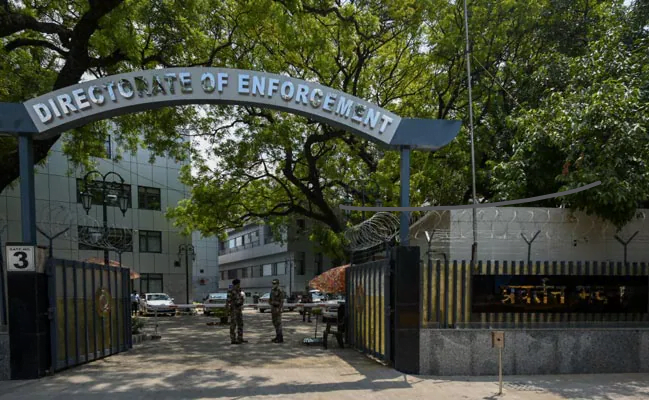Exposing the Complex Web of Financial Fraud and Cyber Criminal Activities
The recent arrest of a Delhi-based individual by the Enforcement Directorate (ED) has sent shockwaves through the cybercrime and money laundering investigation circles. Ashish Kakkar, identified as a “cyber fraudster,” was apprehended from a Gurugram hotel in connection with an alleged scam involving around ₹5,000 crore.
Unraveling the Money Laundering Scheme
The ED alleges that Ashish Kakkar played a pivotal role as a kingpin in a syndicate responsible for generating, layering, and siphoning off proceeds of crime amounting to ₹4,978 crore. This illicit wealth was amassed through various cyber crimes and online gaming activities spanning from 2020 to 2024, with cases registered across multiple states including Delhi, Rajasthan, Uttar Pradesh, and Haryana.
Modus Operandi and Fraudulent Schemes
According to the ED’s investigation, fraudsters like Ashish Kakkar employed a range of deceptive tactics to swindle unsuspecting individuals. Delhi These tactics included investment fraud, part-time job scams, online shopping deceptions, and loan fraud. Among these, the most common method involved enticing victims with promises of lucrative returns on investments, only to extract additional payments under pretenses such as taxation or processing fees.
Layering and Hawala Transactions
The ED further revealed that the ill-gotten gains from these schemes were systematically “layered” and accumulated in bank accounts controlled by Ashish Kakkar and his associates. To conceal the origins of these funds, they were then funneled out of India through foreign outward remittances. Delhi The use of dummy companies, numbering over 200 according to the investigation, played a crucial role in facilitating these fraudulent transactions.
Import-Export Shenanigans and Circular Trading
In a complex web of illicit activities, Ashish Kakkar and his accomplices allegedly engaged in circular trading through import-export operations. By inflating the value of imported goods like rose oil and solar panel machinery, they managed to create a façade of legitimate business activities in Special Economic Zones (SEZs). However, the reality was far from legal, as no corresponding remittances were received against the export of these goods from SEZs.
Conclusion: Unraveling the Depths of Financial Fraud
The arrest of Ashish Kakkar sheds light on the intricate schemes employed by cyber fraudsters to perpetrate large-scale financial crimes. As investigations continue, authorities aim to uncover the full extent of the money laundering network and bring the perpetrators to justice.
